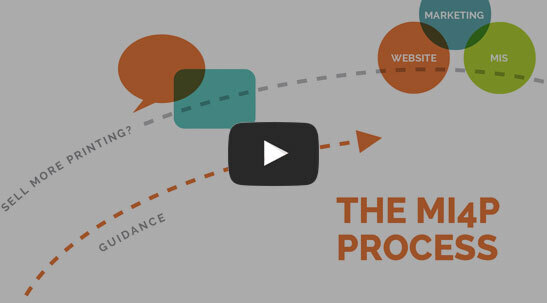Be Prepared for the Next Phase of the Canadian Anti-Spam Law

Back in December 2010, Canada passed a sweeping anti-spam law that entered into force on July 1, 2014. The super-short version of the law that’s important to our Canadian printers is this:
Before sending any electronic messages, you are required to have the consent (permission) of the recipient. (Note that “electronic messages” means more than email; it also includes messages sent to social networking accounts and text messages sent to a cell phone.)
At this point, you may be thinking, “It’s 2017, and this is old news. Why are you telling me this now?” Well, although you may already be aware of the law, what you may not be aware of is that this new law is wrapping up a “breaking in” period of three years, with the full force of the law taking effect this summer.
Starting July 1, 2017, individuals or organizations affected by those violating the law will be able to pursue court actions to seek actual and statutory damages (up to $1 million for individuals, and $10 million for business).
Some Quick Tips
To make sure you’re prepared, here are some quick tips to help you navigate Canada’s anti-spam law:
- If you obtained express consent from your recipient before the law went into effect on July 1, 2014, that consent is still valid and fulfills the requirements of the anti-spam law.
- Implied consent means you’ve established a relationship with the recipient within the last two years. Implied consent doesn’t give you the right to start sending unsolicited email; however, you may use implied consent as a means of requesting express consent.
- Keep records of how you obtained implied or express consent because it’s up to you to prove consent! Make sure to record how the consent was obtained (either written or orally), when consent was obtained, why it was obtained, and the manner in which it was obtained.
What About Printer@Work?
So what does this mean for you if you’re a Canadian printer sending out the Printer@Work email newsletter? It means you need to make sure your recipients have given you express consent (not implied consent!) to receive the Printer@Work email newsletter. Take a look at the subscribers on your list. Each subscriber record includes a source field. Does the entry in that field accurately record express consent? (If they signed up online, therefore giving their express consent, that field would have the word “web” in it.)
However, if you do not know the source, the exact circumstance and language used to gain the opt-in, and the nature of your relationship with each Canadian individual on your list, give careful consideration to keeping them on your list after July 1, 2017.
Additional Resources
Need to dig deeper? There’s a lot of helpful information on Canada’s Anti-Spam Legislation website, including a thorough FAQ page.
These tips are just a “friendly” opinion we’re offering and not a legal opinion. If you have additional concerns about how the Canadian spam legislation specifically affects you, please consider consulting an attorney.

